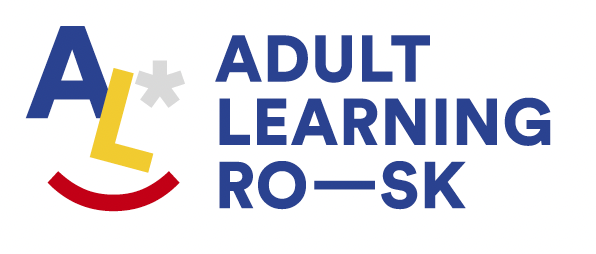Reasons why
The COVID-19 pandemics has made it crucial for Social Europe to come to life at a fast pace. With an accelerated digitalisation and more generally job transformation, where the jobs were not lost altogether, has changed the jobs landscape, in a couple of months only, into what we call “the future of work” - the post-pandemic world of work, the future is already here.
About 35% of the workers in RO and SK have worked fewer hours. While the most immediate challenge is the need to support employment as the pandemic situation evolves, this should be done considering the technological, economic and social transformation. With the best grassroot experience, social partners are in the best position to address this challenge at national level, considering both local specifics and the EU strategic directions.
Drawing from the current EU political priorities2, the recent Porto Summit Declaration recognizes the role of social dialogue and social partners’ engagement for a competitive social economy and sets ambitious targets in a joint approach of employment and skills – an employment rate of at least 78% in the EU at least 60% of adults attending training courses every year. At this point in time, these targets are very far away from the realities in RO and SK, especially regarding the adults training as the current rates are below 5%. These figures show not only how much the two countries need to catch up, but also how unprepared they are for the ongoing transformation in the world of work. Also add to it a low level of digital skills – both below the EU average according to 2020 DESI Index.
A non-responsive educational system is the main cause for this lagging behind, according to European Semester Country Reports in RO and SK, but also paired with a variety of other missing enablers: lack of awareness among employers and employees on jobs transformations and importance of adult learning in the field, a ccumbersome national education system for adults that is not only unresponsive to changes on the labor market (new technologies, new jobs, new skills) but also difficult to navigate for building a skills pathway.
Although the member states have implemented a range of policy measures to reduce the impact of the pandemic, most of these measures focused on short-time working, temporary unemployment/wage-subsidy schemes. The learning/training opportunities, especially for adults were left behind. Only a couple of member states provided financial incentives for training or implemented some requirements for workers to take up training during downtime periods. Neither RO nor SK have implemented adult learning related measures during the pandemics and no such reforms are included in their NRRPs.
Moreover, studies show that many adult workers are reluctant to building news skills and changing job3 despite all forecasts showing a high likelihood of changing it before retirement.
The pandemic also affected the social partners capacity to address relevant issues and the consequences of the pandemic, with the CEE social partners already facing low capacity.
As automation and digitalization increase pace, many workers will find themselves jobless or in positions for which they do not hold the suitable set of skills, thus negatively affecting their productivity and wellbeing. The latest World Economic Forum’s Future of Jobs report estimates that the process of technology adoption will continue at the same speed, or even accelerate in some areas. 43% of the surveyed businesses plan to reduce their workforce due to increased technology integration in their operations, while only 34% plan to expand it. 85 million jobs will disappear, while 97 million new roles will emerge, but the job creation process is slowing, while job destruction accelerates.4 Covid-19 might push forward the adoption of technology in work processes even faster, as demonstrated by the 2007- 2008 global financial crisis.
While we discuss about economic recovery, we notice the trends related to automation and digitalisation tend to mostly affect people in low-income, low-skilled jobs, people who lack the necessary set of digital skills and do not have the capacity to self-sustain courses for reskilling and upskilling. Consequently, the social and economic impact will be substantial. In this context, adult learning, particularly with a focus on digital skills, is increasingly important for active individuals to permanently upskill, ensure an effective performance at work, facilitate progress and maintain their employability.
To ensure decent work and real, inclusive growth, governments and social partners need to collaborate in order to develop new skills adapted to the technological revolution we witness today, and to implement lifelong learning systems facilitating the acquisition of such skills. While a systemic reform could provide some benefits to scale but no flexibility, we propose as a first step better understanding the landscape and then start building experiential human-centered and more flexible learning solutions that would be tailor to ensure workers’ resilience. This would be also a sustainable manner for the social partners involved to build own capacity and be further active in promoting solutions for adult learning in RO and SK.

References
1. Living and working in Europe 2020 (europa.eu) p. 4
2. https://ec.europa.eu/info/sites/default/files/political-guidelines-next-commission_en_0.pdf
3. OECD Skills Outlook 2021
4. World Economic Forum, The Future of Jobs Report 2020, October 2020.
https://www3.weforum.org/docs/WEF_Future_of_Jobs_2020.pdf
5. International Labour Organization, OECD, Global Deal, The Global Deal for Decent Work and Inclusive Growth Flagship Report – Social Dialogue, Skills and Covid-19.
The AdultLearningROSK project is co-funded by the European Union. The sole responsibility of the content published on this website lies with the author. The European Commission or any other body of the European Union is not responsible for any use that may be made of the information it contains.
Disclaimer: This website was brought to you in part by the magic of AI technology. No human writers were harmed in the process, but rather empowered to strive for excellence and improve their craft. So, if you find a typo, a quirky sentence, or a laugh-out-loud moment, don't blame the humans, blame the algorithms! But seriously, we believe that AI is an opportunity to make things better and more effective, not a threat to take away jobs. So sit back, relax, and enjoy the ride!

